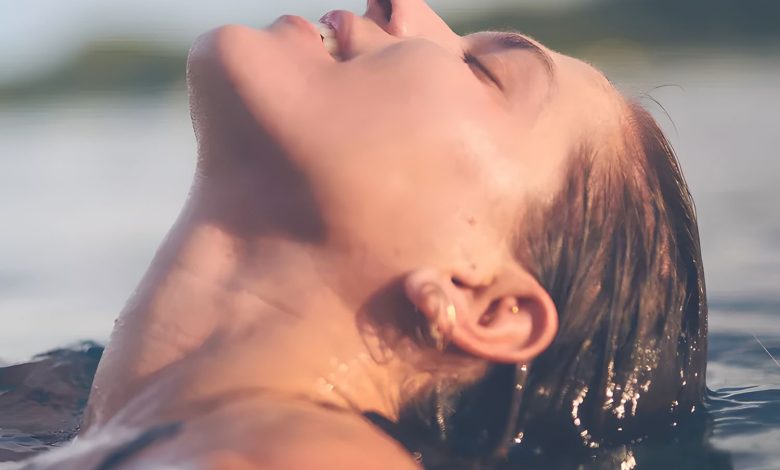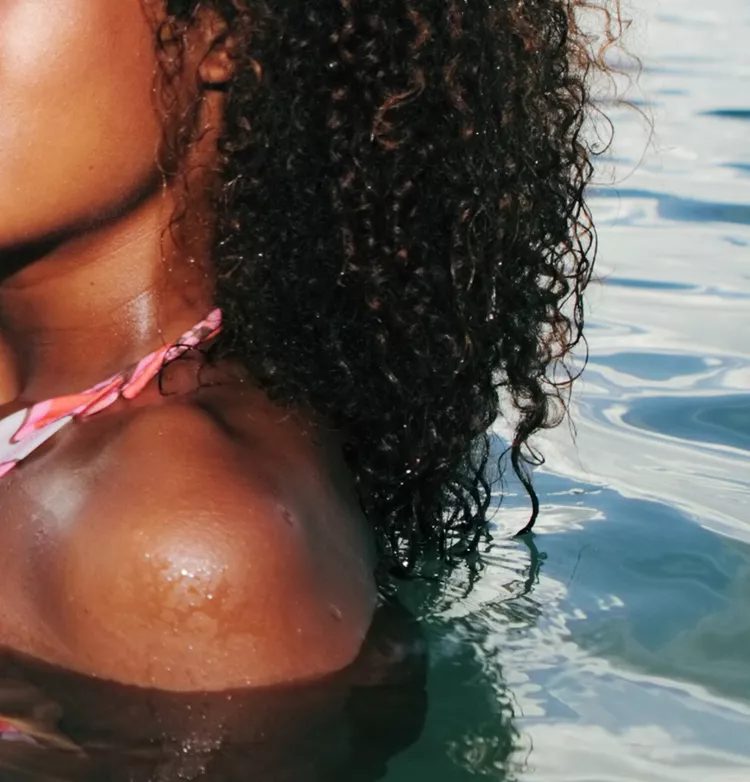
Summer season is so close we can almost taste it. Within a couple of brief weeks, our days will be filled with outings, windows-down car rides, and journeys to the coastline (or a minimum of dreams of such). While thinking about the last, your very first instinct might be to inspect your sun block collection. As crucial as skin protection is, we implore you to consider your tresses, also. Along with UV defense for hair, you’ll additionally wish to be mindful of how you prep and treat your strands pre- and post-saltwater swim. Nevertheless, there’s a reason that many people Google whether seawater is bad for your hair.
As rejuvenating as a dip in the sea can feel, inappropriate pre- and post-swim treatment can cause some pretty undesirable hair results. “Salt water can dry out the hair and scalp, leading to fragile and completely dry hair,” says celeb hair stylist Andrew Fitzsimons. “This can bring about additional issues like harmed strands, as the salt water will make the hair follicle susceptible to damages.”
Seawater can influence hair shade, as well. “Submerging your hair in all-natural salt water can deteriorate the hair framework and strip man-made shade from your hair,” cautions Davines Educator Emily Claire, who is a stylist at Rob Peetoom in Williamsburg, Brooklyn. “As somebody who colors their hair, generally, I choose to avoid seawater and chlorine direct exposure.” It can likewise break down other chemical procedures, like a keratin treatment.
Can not imagine a summer season without salt water? You’re not the only one– and you don’t have to. While seawater can unfortunately ruin hair, trichologist Helen Reavey, that is the founder of Act+ Acre, points out that it’s everything about the period of exposure.
” Salt water can be damaging to the hair if it’s exposed frequently or for as well long,” she says. “As the name recommends, salt water has an exceptionally high focus of salt, which can remove the hair of its natural oils leaving it completely dry, weak, and susceptible to damages. In addition, salt water creates the hair roots to lift making it extra vulnerable to damage from sunlight exposure and various other ecological factors.” That stated, if your ocean swims are occasional general– and if they’re collaborated with a protective hair care routine, you’ll be A-okay.
Salt Water and Hair Loss

Getty Images
Prior to offering you the run-through on how to secure hair versus seawater damage, allow us to attend to another usual problem: hair loss as it relates to salt water exposure.
” Salt water adds to hair loss due to breakage, yet not hair loss at the origin,” claims trichologist Angela Onuoha, a brand ambassador for Divi Scalp & Hair Health. “However, salt water can cause a dry and aggravated scalp, which does not create a favorable microbiome for hair growth.”
Furthermore, celeb hairdresser and co-founder of The Beachwaver Co., Sarah Potempa, states that consistent salt water direct exposure can lead to the look of after effects. “Salt water shouldn’t cause hair loss when subjected in moderation,” she states. “However, regular direct exposure to seawater can dry out the strands out, making them a lot more prone to damage. As hair breaks, it can often tend to look thin, particularly in the direction of the ends.”
Exactly How to Protect Hair From Salt Water
The most convenient way to safeguard your hair from salt-water damages is to rinse before and after your dip. “If you can, I advise promptly washing your hair prior to getting in the sea– by saturating your hair with tidy water, it can take in less seawater, decreasing the drying out results,” Reavey says, noting that washing post-swim can assist free strands of seawater and replace it with dampness barrier-supporting ingredients, depending on your picked hair-care items. (We’ll touch on that in a bit.).
An additional means to shield hairs versus seawater damages? Treat your hair– damp or dry– with leave-in conditioner before taking a dip.
BosleyMD trichologist Gretchen Friese recommends doubling up on these 2 methods for the very best deep sea hair defense. “Hair acts like a sponge– if the sponge contains something, there isn’t room left to absorb much else,” she says. “So if you can load the hairs with regular water (and even some leave-in conditioner) prior to getting in the seawater, there will not be much space for the seawater absorption.”.
Meanwhile, if you’re swimming for sport, plan to be in the water for a very long time, or do not mind not letting your strands hang loose, Reavey suggests putting on a swim cap. “If you’ll be investing a lot of time in salt water, think about putting on a swim cap to secure your hair from straight contact,” she says.
The Most Effective Cleansing Routine Post-Salt Water.
Actually, if you’re at the beach, there’s an excellent possibility that you won’t have access to a shower with hair-care items (or you’ll have way too much on your summertime container list to wish to pop back home or into your resort area to right away bath off post-swim). With that said in mind, make sure to bring a bottle of leave-in conditioner and a detangling brush in your coastline bag.
” I tell my clients to use a leave-in conditioner before and after swimming to nurture and safeguard the hair and to help keep its softness,” Onuoha claims. “Also, since salt water is drying, hair tends to be left tangled, which can trigger damages, so a leave-in with detangler is a must.”.
After that, when you’re back home (preferably sooner as opposed to later– like make-up on your face, you do not intend to sleep with seawater in your hair), jump in the shower and grab a nourishing shampoo and conditioner combo.
After cleaning, Onuoha suggests utilizing a scalp serum to “moisten the scalp and to combat the dryness triggered by the salt water.” You can likewise treat your mids and ends to extreme hydration with a leave-in hair mask post-salt water exposure.
The Takeaway
Seawater can be harming to hairs, but with appropriate prep and post-swim treatment, you can enjoy ocean dips without concern. Simply be sure to suitably stock your beach bag and shower (whether in your home or on vacation) with strand-saving solutions. Pleased summertime!




